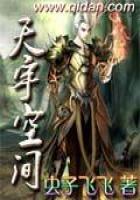As he walked through the streets, he was thinking of one of these stories. It was one he had heard first when he was very young, and it had so seized upon his imagination that he had asked often for it. It was, indeed, a part of the long-past history of Samavia, and he had loved it for that reason. Lazarus had often told it to him, sometimes adding much detail, but he had always liked best his father's version, which seemed a thrilling and living thing. On their journey from Russia, during an hour when they had been forced to wait in a cold wayside station and had found the time long, Loristan had discussed it with him. He always found some such way of ****** hard and comfortless hours easier to live through.
“Fine, big lad--for a foreigner,'' Marco heard a man say to his companion as he passed them this morning. “Looks like a Pole or a Russian.''
It was this which had led his thoughts back to the story of the Lost Prince. He knew that most of the people who looked at him and called him a “foreigner'' had not even heard of Samavia.
Those who chanced to recall its existence knew of it only as a small fierce country, so placed upon the map that the larger countries which were its neighbors felt they must control and keep it in order, and therefore made incursions into it, and fought its people and each other for possession. But it had not been always so. It was an old, old country, and hundreds of years ago it had been as celebrated for its peaceful happiness and wealth as for its beauty. It was often said that it was one of the most beautiful places in the world. A favorite Samavian legend was that it had been the site of the Garden of Eden. In those past centuries, its people had been of such great stature, physical beauty, and strength, that they had been like a race of noble giants. They were in those days a pastoral people, whose rich crops and splendid flocks and herds were the envy of less fertile countries. Among the shepherds and herdsmen there were poets who sang their own songs when they piped among their sheep upon the mountain sides and in the flower-thick valleys. Their songs had been about patriotism and bravery, and faithfulness to their chieftains and their country. The ****** courtesy of the poorest peasant was as stately as the manner of a noble. But that, as Loristan had said with a tired smile, had been before they had had time to outlive and forget the Garden of Eden. Five hundred years ago, there had succeeded to the throne a king who was bad and weak. His father had lived to be ninety years old, and his son had grown tired of waiting in Samavia for his crown.
He had gone out into the world, and visited other countries and their courts. When he returned and became king, he lived as no Samavian king had lived before. He was an extravagant, vicious man of furious temper and bitter jealousies. He was jealous of the larger courts and countries he had seen, and tried to introduce their customs and their ambitions. He ended by introducing their worst faults and vices. There arose political quarrels and savage new factions. Money was squandered until poverty began for the first time to stare the country in the face. The big Samavians, after their first stupefaction, broke forth into furious rage. There were mobs and riots, then bloody battles. Since it was the king who had worked this wrong, they would have none of him. They would depose him and make his son king in his place. It was at this part of the story that Marco was always most deeply interested. The young prince was totally unlike his father. He was a true royal Samavian. He was bigger and stronger for his age than any man in the country, and he was as handsome as a young Viking god. More than this, he had a lion's heart, and before he was sixteen, the shepherds and herdsmen had already begun to make songs about his young valor, and his kingly courtesy, and generous kindness. Not only the shepherds and herdsmen sang them, but the people in the streets.
The king, his father, had always been jealous of him, even when he was only a beautiful, stately child whom the people roared with joy to see as he rode through the streets. When he returned from his journeyings and found him a splendid youth, he detested him. When the people began to clamor and demand that he himself should abdicate, he became insane with rage, and committed such cruelties that the people ran mad themselves. One day they stormed the palace, killed and overpowered the guards, and, rushing into the royal apartments, burst in upon the king as he shuddered green with terror and fury in his private room. He was king no more, and must leave the country, they vowed, as they closed round him with bared weapons and shook them in his face.
Where was the prince? They must see him and tell him their ultimatum. It was he whom they wanted for a king. They trusted him and would obey him. They began to shout aloud his name, calling him in a sort of chant in unison, “Prince Ivor--Prince Ivor--Prince Ivor!'' But no answer came. The people of the palace had hidden themselves, and the place was utterly silent.
The king, despite his terror, could not help but sneer.
“Call him again,'' he said. “He is afraid to come out of his hole!''
A savage fellow from the mountain fastnesses struck him on the mouth.
“He afraid!'' he shouted. “If he does not come, it is because thou hast killed him--and thou art a dead man!''
This set them aflame with hotter burning. They broke away, leaving three on guard, and ran about the empty palace rooms shouting the prince's name. But there was no answer. They sought him in a frenzy, bursting open doors and flinging down every obstacle in their way. A page, found hidden in a closet, owned that he had seen His Royal Highness pass through a corridor early in the morning. He had been softly singing to himself one of the shepherd's songs.
And in this strange way out of the history of Samavia, five hundred years before Marco's day, the young prince had walked--singing softly to himself the old song of Samavia's beauty and happiness. For he was never seen again.















